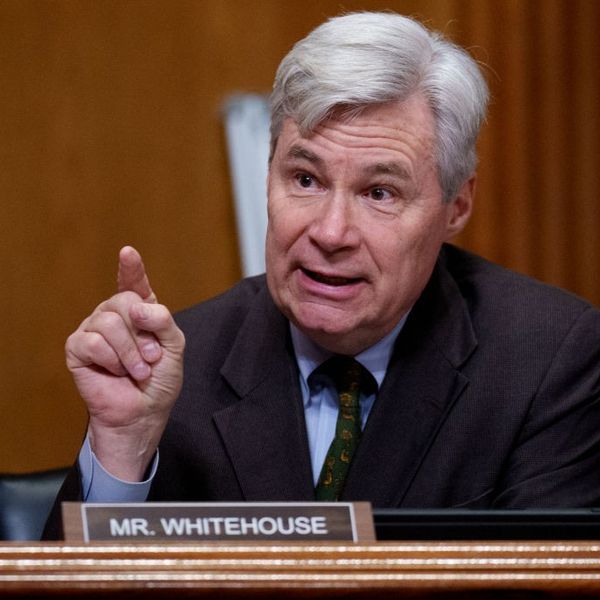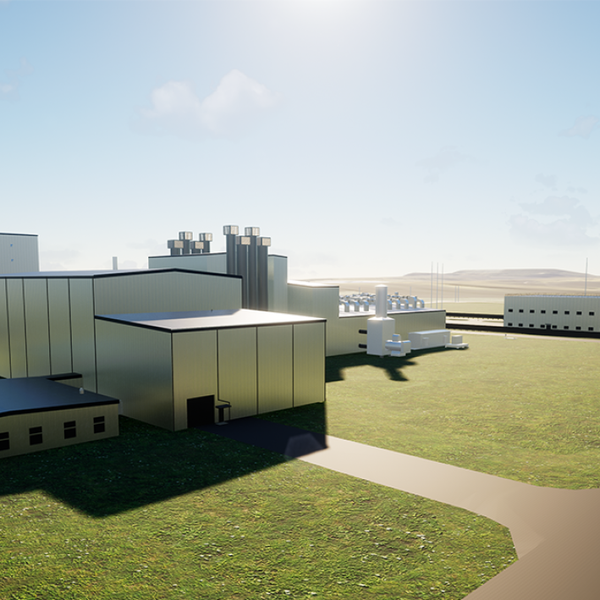In First, Majority of Americans Now Oppose Nuclear Energy
Gallup poll comes as new campaign counters nuclear's "clean energy myth"
A majority of Americans--54 percent--oppose nuclear energy, a Gallup poll released Friday found.
It marks the first time a majority in the country has felt this way about nuclear energy providing electricity since Gallup began asking the question in 1994.
Forty-four percent said they are still in support of it.
The new results show a major shift from responses last year, when just 43 percent expressed opposition to nuclear energy and support stood at 51 percent.
Republican support, in particular, dropped steeply from 2015. Fifty-three percent now say they are in favor of nuclear energy, compared to 68 percent last year. Thirty-four percent of Democrats are in favor of nuclear energy, an 8-point drop from last year.
Even in 2012, the first time Gallup asked the question after the Fukushima disaster, 57 percent of Americans were still in favor of nuclear energy.
As to why to tide has turned, Gallup suggests it may be the result of lower gas prices, as they have coincided with low levels of worry about the nation's energy situation.
Gallups conducted the new poll of 1,019 adults nationwide from March 2 to 6, 2016, It has 4 percent margin of error.
The poll comes a week after the five-year anniversary of the Fukushima nuclear disaster, when said Cindy Folkers, radiation and health specialist at the advocacy organization Beyond Nuclear warned, "Not only is there no Plan B for what to do if and when a Fukushima-style disaster happens in the U.S., there is no Plan A to prevent one either."
And this week, the Nuclear Information and Resource Service (NIRS) launched their #NuclearIsDirty campaign, which aims to counter the myth of nuclear power as "clean."
Explaining the need for the campaign, NIRS Executive Director Tim Judson wrote Tuesday:
You can't build a "bridge" to clean energy on top of radioactive waste. Nuclear power is too expensive and too slow to solve the climate crisis, but it is also too dirty and too dangerous to justify. If countries choose nuclear as a climate solution, they are also choosing to target communities for everything that goes along with it: uranium mining and milling, radioactive discharges and leaks, radioactive waste ... and of course, nuclear disasters. All of this adds up to mountains of long-lived and poisonous waste, leaching into groundwater; spilling into rivers, lakes and oceans; venting into the air; contaminating the land; and being ingested by humans, animals, and plants alike. That is the real story of nuclear power. And it has to be told.
An Urgent Message From Our Co-Founder
Dear Common Dreams reader, The U.S. is on a fast track to authoritarianism like nothing I've ever seen. Meanwhile, corporate news outlets are utterly capitulating to Trump, twisting their coverage to avoid drawing his ire while lining up to stuff cash in his pockets. That's why I believe that Common Dreams is doing the best and most consequential reporting that we've ever done. Our small but mighty team is a progressive reporting powerhouse, covering the news every day that the corporate media never will. Our mission has always been simple: To inform. To inspire. And to ignite change for the common good. Now here's the key piece that I want all our readers to understand: None of this would be possible without your financial support. That's not just some fundraising cliche. It's the absolute and literal truth. We don't accept corporate advertising and never will. We don't have a paywall because we don't think people should be blocked from critical news based on their ability to pay. Everything we do is funded by the donations of readers like you. Will you donate now to help power the nonprofit, independent reporting of Common Dreams? Thank you for being a vital member of our community. Together, we can keep independent journalism alive when it’s needed most. - Craig Brown, Co-founder |
A majority of Americans--54 percent--oppose nuclear energy, a Gallup poll released Friday found.
It marks the first time a majority in the country has felt this way about nuclear energy providing electricity since Gallup began asking the question in 1994.
Forty-four percent said they are still in support of it.
The new results show a major shift from responses last year, when just 43 percent expressed opposition to nuclear energy and support stood at 51 percent.
Republican support, in particular, dropped steeply from 2015. Fifty-three percent now say they are in favor of nuclear energy, compared to 68 percent last year. Thirty-four percent of Democrats are in favor of nuclear energy, an 8-point drop from last year.
Even in 2012, the first time Gallup asked the question after the Fukushima disaster, 57 percent of Americans were still in favor of nuclear energy.
As to why to tide has turned, Gallup suggests it may be the result of lower gas prices, as they have coincided with low levels of worry about the nation's energy situation.
Gallups conducted the new poll of 1,019 adults nationwide from March 2 to 6, 2016, It has 4 percent margin of error.
The poll comes a week after the five-year anniversary of the Fukushima nuclear disaster, when said Cindy Folkers, radiation and health specialist at the advocacy organization Beyond Nuclear warned, "Not only is there no Plan B for what to do if and when a Fukushima-style disaster happens in the U.S., there is no Plan A to prevent one either."
And this week, the Nuclear Information and Resource Service (NIRS) launched their #NuclearIsDirty campaign, which aims to counter the myth of nuclear power as "clean."
Explaining the need for the campaign, NIRS Executive Director Tim Judson wrote Tuesday:
You can't build a "bridge" to clean energy on top of radioactive waste. Nuclear power is too expensive and too slow to solve the climate crisis, but it is also too dirty and too dangerous to justify. If countries choose nuclear as a climate solution, they are also choosing to target communities for everything that goes along with it: uranium mining and milling, radioactive discharges and leaks, radioactive waste ... and of course, nuclear disasters. All of this adds up to mountains of long-lived and poisonous waste, leaching into groundwater; spilling into rivers, lakes and oceans; venting into the air; contaminating the land; and being ingested by humans, animals, and plants alike. That is the real story of nuclear power. And it has to be told.
A majority of Americans--54 percent--oppose nuclear energy, a Gallup poll released Friday found.
It marks the first time a majority in the country has felt this way about nuclear energy providing electricity since Gallup began asking the question in 1994.
Forty-four percent said they are still in support of it.
The new results show a major shift from responses last year, when just 43 percent expressed opposition to nuclear energy and support stood at 51 percent.
Republican support, in particular, dropped steeply from 2015. Fifty-three percent now say they are in favor of nuclear energy, compared to 68 percent last year. Thirty-four percent of Democrats are in favor of nuclear energy, an 8-point drop from last year.
Even in 2012, the first time Gallup asked the question after the Fukushima disaster, 57 percent of Americans were still in favor of nuclear energy.
As to why to tide has turned, Gallup suggests it may be the result of lower gas prices, as they have coincided with low levels of worry about the nation's energy situation.
Gallups conducted the new poll of 1,019 adults nationwide from March 2 to 6, 2016, It has 4 percent margin of error.
The poll comes a week after the five-year anniversary of the Fukushima nuclear disaster, when said Cindy Folkers, radiation and health specialist at the advocacy organization Beyond Nuclear warned, "Not only is there no Plan B for what to do if and when a Fukushima-style disaster happens in the U.S., there is no Plan A to prevent one either."
And this week, the Nuclear Information and Resource Service (NIRS) launched their #NuclearIsDirty campaign, which aims to counter the myth of nuclear power as "clean."
Explaining the need for the campaign, NIRS Executive Director Tim Judson wrote Tuesday:
You can't build a "bridge" to clean energy on top of radioactive waste. Nuclear power is too expensive and too slow to solve the climate crisis, but it is also too dirty and too dangerous to justify. If countries choose nuclear as a climate solution, they are also choosing to target communities for everything that goes along with it: uranium mining and milling, radioactive discharges and leaks, radioactive waste ... and of course, nuclear disasters. All of this adds up to mountains of long-lived and poisonous waste, leaching into groundwater; spilling into rivers, lakes and oceans; venting into the air; contaminating the land; and being ingested by humans, animals, and plants alike. That is the real story of nuclear power. And it has to be told.

